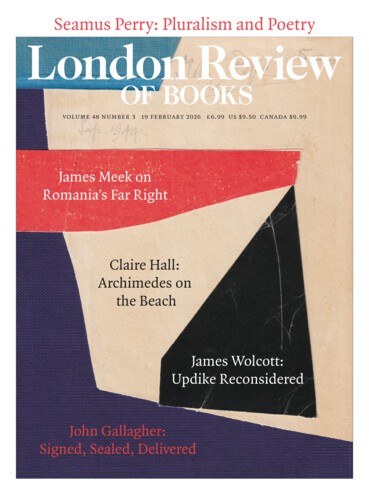Updike Reconsidered
James Wolcott
Maybe it’s just me, but the publication of John Updike’s selected letters, masterfully assembled and presented by James Schiff, doesn’t appear to have been the parade event that might have been expected. The reviews have been largely laudatory, marbled with tribute to Updike’s impeccable filigree, effortless versatility, unfaltering application and sleek plumage,...

